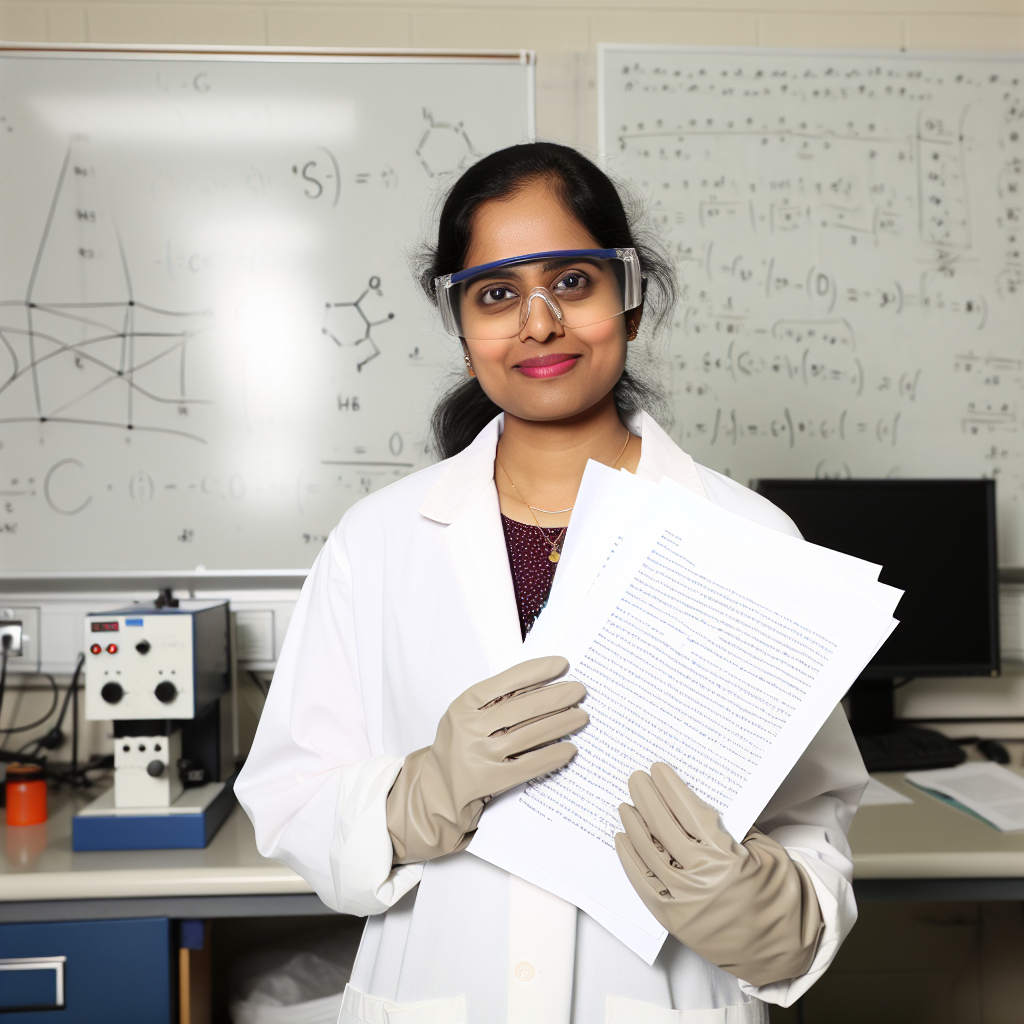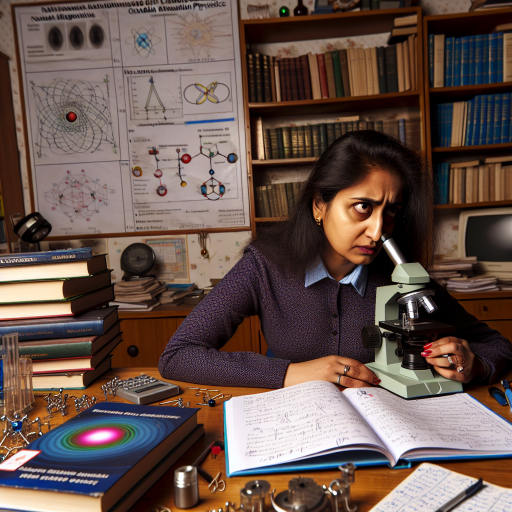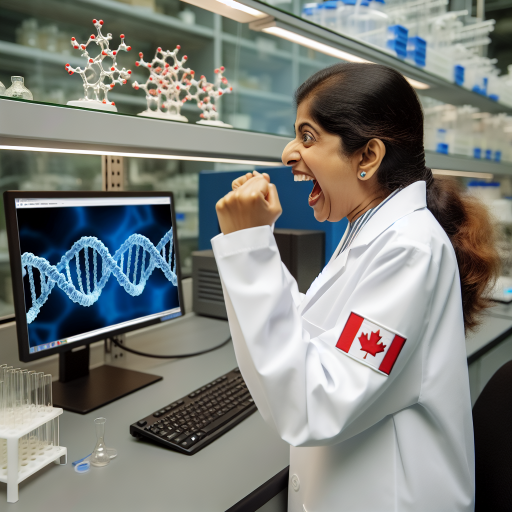Strong Mathematical Skills for Data Analysis and Modeling
The Importance of Mathematics
Mathematics forms the backbone of physics research.
It enables physicists to analyze data effectively.
Moreover, strong math skills assist in creating models.
These models help predict various physical phenomena.
Key Mathematical Areas
Several mathematical areas are particularly vital.
- Calculus is essential for understanding changes.
- Linear algebra supports vector spaces used in physics.
- Statistics aids in interpreting experimental data.
- Differential equations describe dynamic systems.
Applying Mathematical Principles
Physicists apply mathematical principles to solve problems.
For instance, they use calculus to understand motion.
Additionally, they employ statistics to assess experiment reliability.
This application of math leads to meaningful conclusions.
Developing Mathematical Skills
Continuous practice is key to honing math skills.
Students should engage in challenging math courses.
Participating in study groups can enhance understanding.
Furthermore, utilizing online resources can offer additional support.
Ultimately, persistent effort builds strong mathematical foundations.
Critical Thinking and Problem-Solving Abilities in Complex Theories
The Importance of Critical Thinking
Critical thinking forms the backbone of successful physics research.
This skill allows physicists to analyze complex theories effectively.
Moreover, it helps in identifying underlying assumptions in scientific arguments.
By employing critical thinking, physicists can make informed decisions.
This ability facilitates the evaluation of experimental data and results.
Problem-Solving Skills and Their Application
Problem-solving skills are essential for physicists faced with challenges.
These skills aid in devising innovative solutions for complex problems.
Physicists often encounter multifaceted phenomena needing thoughtful analysis.
For instance, breaking down a complex equation enhances understanding.
Furthermore, utilizing simulations can help visualize intricate concepts.
Interdisciplinary Approaches
Physics is increasingly intersecting with other scientific disciplines.
Unlock Your Career Potential
Visualize a clear path to success with our tailored Career Consulting service. Personalized insights in just 1-3 days.
Get StartedThus, interdisciplinary knowledge becomes valuable for contemporary physicists.
For example, understanding biology can enhance research in biophysics.
Similarly, integrating computer science opens new avenues for data analysis.
These collaborative efforts often lead to groundbreaking discoveries.
Practical Application of Theoretical Knowledge
Theoretical knowledge must translate into real-world applications.
Physicists need to bridge the gap between theory and practice.
Experiments and hands-on projects validate theoretical frameworks.
Additionally, industry partnerships can showcase the relevance of theories.
Such applications demonstrate the tangible impact of physics on society.
Effective Communication of Complex Ideas
Communicating complex ideas clearly is a vital skill for physicists.
They must often present findings to diverse audiences.
Using straightforward language enhances understanding.
Data visualization tools can also aid in presenting complex information.
Ultimately, effective communication fosters collaboration and knowledge sharing.
Proficiency in Experimental Techniques and Laboratory Skills
Importance of Practical Skills
Experimental techniques are crucial for physicists to validate theories.
Hands-on laboratory skills help in conducting experiments effectively.
Moreover, these skills enable physicists to collect accurate data.
Fundamental Laboratory Skills
Mastering basic laboratory skills is essential for every physicist.
Understanding safety protocols can prevent accidents in the lab.
Additionally, familiarity with laboratory equipment enhances experiment quality.
For instance, knowing how to operate oscilloscopes is vital.
Advanced Experimental Techniques
Advanced techniques often lead to groundbreaking discoveries.
Techniques like spectroscopy provide insight into material properties.
Moreover, particle collision experiments shed light on subatomic interactions.
Data Analysis and Interpretation
Data analysis is a critical component of experimental physics.
Physicists must be proficient in statistical tools and software.
Moreover, they should understand how to interpret experimental results.
Being skilled in programming languages aids in data manipulation.
Team Collaboration in Research
Collaboration is a key aspect of any scientific research project.
Working within teams fosters diverse ideas and solutions.
Moreover, sharing responsibilities enhances overall productivity.
Effective communication ensures that everyone is on the same page.
Continual Learning and Adaptation
Physics is an evolving field, requiring continual learning.
Staying updated with emerging technologies is crucial for success.
Joining workshops and conferences helps in skill enhancement.
Moreover, reading recent publications keeps physicists informed about innovations.
Uncover the Details: Exploring Job Roles and Responsibilities of Ecologists
Effective Communication Skills for Presenting Research Findings
Importance of Clarity
Clarity is essential when presenting research findings.
Viewers must understand your message quickly.
Use straightforward language to eliminate confusion.
Avoid jargon unless it is necessary.
Engagement with the Audience
Engage your audience from the beginning.
Start with a compelling opening statement.
Encourage questions to promote interaction.
Use examples that resonate with your listeners.
Visual Aids
Visual aids enhance understanding of complex concepts.
Use charts, graphs, and images effectively.
Keep slides clear and uncluttered.
Limit the amount of text on each slide.
Practice and Preparation
Practice your presentation multiple times.
Familiarize yourself with your material thoroughly.
Seek feedback from colleagues to refine your delivery.
Arrive early to set up and test equipment.
Adapting to Feedback
Be receptive to audience feedback during the presentation.
Adjust your delivery based on their reactions.
This adaptability shows professionalism and confidence.
Encourage an open dialogue throughout the session.
You Might Also Like: How to Network and Build a Career in Geology
Collaboration and Teamwork in Multidisciplinary Research Settings
Importance of Collaboration
Collaboration enhances the problem-solving process in physics research.
It fosters diverse perspectives that lead to innovative solutions.
Working in teams promotes knowledge sharing among researchers.
Additionally, collaboration helps to distribute workload effectively.
Building Effective Teams
Successful teams consist of individuals with complementary skills.
Team members should communicate openly and regularly.
Establishing clear goals enhances team focus and productivity.
Moreover, respecting each member’s expertise builds trust and cohesion.
Navigating Multidisciplinary Approaches
Modern physics often intersects with other scientific fields.
Collaboration with chemists and biologists can spark creativity.
Understanding different methodologies boosts research outcomes.
Moreover, engaging with engineers can lead to practical applications of theories.
Overcoming Challenges in Team Dynamics
Conflict may arise due to differing opinions within teams.
Addressing these conflicts promptly promotes a healthy working environment.
Encouraging empathy and understanding is crucial during disagreements.
Embracing diversity leads to richer research experiences.
Leveraging Technology for Collaboration
Technology plays a vital role in facilitating effective teamwork.
Collaboration tools enable real-time communication among team members.
Shared platforms allow for easy access to project documents and data.
Furthermore, virtual meetings can connect geographies without delay.
Find Out More: Tools and Technology Every Ecologist Should Know

Attention to Detail in Conducting Experiments and Data Interpretation
The Importance of Detail in Experiments
Attention to detail is critical in experimental physics.
Each small mistake can lead to significant errors in results.
Conducting precise experiments requires thorough preparation.
Researchers must plan each step carefully before execution.
Additionally, documenting every aspect is essential for reproducibility.
Data Collection and Handling
Accurate data collection techniques are fundamental to success.
Physics experiments often produce large amounts of data.
Researchers must ensure all data is recorded systematically.
Using electronic data collection tools can enhance precision.
Regularly validating equipment is necessary to maintain accuracy.
Interpreting Data Effectively
Once data is collected, interpreting it correctly is crucial.
Researchers should compare outcomes with theoretical predictions.
Statistical methods can help in making sense of results.
Visualizing data through graphs can reveal underlying trends.
Furthermore, being open to unexpected results fosters learning.
Collaboration and Communication
Collaboration enhances the process of detail-oriented work.
Discussing findings with colleagues can provide new insights.
Effective communication skills are vital for sharing results.
Researchers should present their findings clearly and concisely.
Moreover, providing context allows others to understand implications.
Delve into the Subject: Career Pathways for Aspiring Epidemiologists
Adaptability to New Technologies and Computational Tools
Importance of Adaptability
Adaptability is crucial for success in physics.
The field constantly evolves with new technologies.
Physicists must embrace these changes to stay relevant.
Additionally, flexibility leads to innovative problem-solving.
Embracing New Technologies
Modern physics integrates advanced technology in experiments.
For example, particle accelerators require sophisticated software.
Physicists should learn to operate complex machinery effectively.
Moreover, many experiments rely on real-time data analysis.
Understanding these technologies enhances research quality.
Utilizing Computational Tools
Computational tools are integral to modern physics research.
They streamline data analysis and simulations significantly.
Tools like MATLAB and Python are commonly used.
Learning these programming languages becomes essential.
Additionally, simulations help visualize complex concepts.
Continuous Learning
The rapid pace of technological advancement necessitates learning.
Physicists must engage in ongoing education and training.
Workshops and online courses provide valuable resources.
Networking with peers can also facilitate knowledge exchange.
Ultimately, continuous learning fosters professional growth.
Collaboration and Teamwork
Collaborating enhances adaptability within research teams.
Team members can share knowledge about new tools.
Cooperative projects encourage diverse perspectives and skills.
Moreover, teamwork can lead to innovative solutions.
Physicists should actively seek collaborative opportunities.
Passion for Continuous Learning and Keeping Up with Advancements in Physics
The Importance of Ongoing Education
A physicist’s career requires a deep commitment to continual learning.
New discoveries and advancements emerge regularly in the field of physics.
This dynamic environment demands that physicists stay informed about trends.
Engaging with academic journals can enhance knowledge and understanding.
Participating in workshops and conferences offers networking opportunities.
Utilizing Online Resources
Online platforms provide vast resources for self-study and exploration.
Webinars and virtual courses enable flexible learning options.
Platforms like Coursera and edX offer courses from top universities.
Social media can also provide insights about ongoing research and trends.
Joining Professional Organizations
Membership in professional organizations is valuable for physicists.
These organizations often provide access to exclusive research and publications.
Networking events foster collaboration and knowledge sharing among peers.
Examples include the American Physical Society and the Institute of Physics.
Staying Aware of Technological Advances
Modern physics heavily relies on technological innovations.
Understanding new tools and techniques is crucial for effective research.
Familiarity with computational methods can greatly enhance data analysis.
Staying up-to-date with artificial intelligence developments is increasingly important.
Building a Diverse Skill Set
Successful physicists often integrate skills from different science and engineering fields.
Acquiring programming skills can be beneficial for data manipulation.
Hands-on laboratory skills are equally important for experimental physics.
Additionally, developing soft skills like communication fosters effective collaboration.
Additional Resources
Funding Opportunities for Postdoctoral Scholars | FAS Office of …
Bachelor of Science career paths: careers to shape the future …




